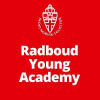© Pint of Science, 2025. All rights reserved.
Why is it time to revisit artificial life??
Siddharth Chaturvedi
(PhD Candidate at Donders Institute)
Earlier research in artificial life simulations were put on halt due to various reasons like lack of computational power, lack of practical applications and advent of reinforcement learning. But now with available computational powers off the charts, saturation in reinforcement learning research and a resurgence of interest in quest to artificial general intelligence it might be time to revisit artificial life simulations. In this talk we will dive into the past, the present and the future of such simulations and wonder how can it be used to evolve open-ended artificial agents and what shall be their applications and ethical implications.
Flash Talk I - How does a new drug kill malaria parasites?
Laura Akkerman
(PhD Candidate at Radboud UMC)
I am trying to figure out what makes a recently discovered drug so good at killing malaria parasites. With a cool method that combines biology and chemistry, I can actually see the drug under the microscope! Are you ready to be introduced to the fascinating world of molecular malaria research?
Flash Talk II - Is general knowledge stored in a separate module?
Qiu Han
(PhD Candidate at Donders Institute)
Our memory is often altered by our knowledge of the world. While some properties are specific to certain objects, some are universal, like gravity: A falling cup's last position will be remembered as lower, meaning we predict based on gravity. How is the knowledge of gravity stored?
How do movies and TV series influence our openness towards minorities?
Joël Hendrix
(PhD candidate at Radboud University)
Media, such as movies and TV series, contribute to the maintenance and reinforcement of stereotypes and prejudice about minority groups in society. At the same time, media can also contribute to changing those stereotypes and prejudice and, in doing so, make people more open towards minorities. In our research, we focus on the psychological processes underlying this influence to explain how movies and TV series influence people’s openness towards minorities.
How does our brain calculate the location of touch in external space?
Hüseyin Orkun Elmas
(PhD Candidate at Radboud University)
Have you ever been amazed by how accurately your brain senses touch? For instance, when a bug lands on your left arm, you instinctively use your right arm to swat it away. The ability to determine the precise location of a touch on our body is a fascinating aspect of multi-sensory transformation and processing. My research aims to develop a mathematical model that uses different modalities of sensory information and stored information about the body to understand remapping touch to 3D space. This model can help us design better prosthetic limbs and enhance our overall understanding of human sensory processing.
Map data © OpenStreetMap contributors.

